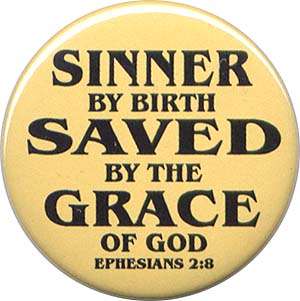Douglas Adams - Hitch Hikers Guide to the Galaxy.
And there we have it.
We live a miniscule life, wrapped in petty insignificance.
The big bang - a fluke event - is just the prelude to the big crunch, when the universe either checks-out with a whimper or somehow finds enough oomph to re-cycle the entire futile process all over again. All the pain, all the hardship, all the striving takes us absolutely no where.
That's what secularism gives us.
You can marvel at the spectacle of the vastness of space, or be astonished at the remarkable complexity of the countless machines at work in a human cell. You can boggle at the fact that the laws of our universe are infinitesimally (some might say perfectly) balanced to allow life to exist on our tiny world, but you cannot commit the cardinal sin of saying any of that actually, truly matters - it's all just one huge intergalactic piece of bad luck, and we're just stuck with it.
So what are we to do?
Perhaps the only answer is to raise a question.
Is secularism right?
Are we nothing more that cosmic flotsam, some of whom own credit cards?
Humanity doesn't need "verified" science to take the road to nowhere. The Enlightenment shows that give our reason free reign, and it will always bend us back in upon ourselves, making existence little more than an extension of our impositions, there to cater for us.
We simply cannot take the 'heat' of what is actually being displayed and conveyed by the masterpiece of creation, and the fact that we 'naturally' (philosophically) move in a nihilistic direction says far more about the true condition of our race than the nature of the universe.
It also amply explains why another manner of definition - theism - is so maligned.
Science tells us the hard facts of material reality, but it cannot tell us why these facts are so. There's no scientific answer to what goes on before or after the material universe (or our material existence), but the facts it has in its hands clearly infers that the manner of this 'accident' we are part of requires mind and intelligence to be involved - there simply isn't a good answer regarding why what is is or why life is viable without it.
So that's why secularism turns in and leaves us with total despair. The alternative is awesome and, to the secular mind, terrifying, for it affirms we are not merely freaks of a chance process, but intended and designed for something more.
Some 3,000 years ago, Solomon observed and unpacked the results of secularism.
It's a dark, foul estate that when faced, drowns us in absolute futility.
Most of us never look that deep. We skim across the surface of life until the skimming stops, and then we sink. Secularism says that's OK - just enjoy the moment - but that's because it's afraid to look beyond itself.
The world is crooked because of us, but we can be bent back to a point where we see further once again. Misery, wickedness, evil and death are not the be all and end all, because right there, in the little pages of our little world and smaller lives, some 2000 years ago, one comes to us who shows there's so much more.
His deeds, His call, was because of a far older event that changed us and made us secularists...
"Adam was doubtless a most miserable and plagued man. He had a wife and sons, which brought joy, but great trouble and misery followed, when one brother slew the other - a murder which caused almost as much grief as his own fall. How lamentable - for during the 900 years of his life he was to see God's anger in the death of every human creature. Our sufferings are marginal in comparison to his - children's toys before the true depths of woe. His one comfort was the promise that all would be changed, not by him or us, but by the promised seed".
Martin Luther (500 years ago).
Christianity doesn't ignore the horror - it simply knows that we're not the remedy to it. That has to come from beyond us - from the mercy of the one who truly knows what all of this is about.
So, here today, where will you go?
Stay on the road to nowhere, or give some thought to what truly counts.
The truth, said Jesus, will truly make you free.




